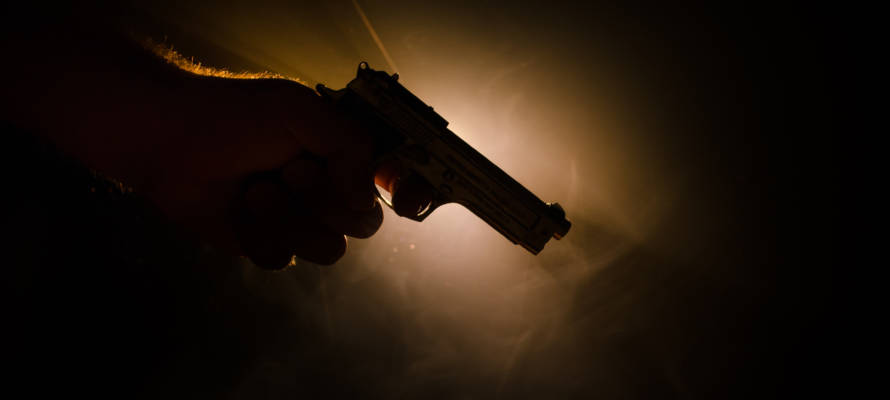This Israeli startup’s technology is already deployed in about 100 US locations — schools, houses of worship, office buildings and healthcare facilities – and the business is growing fast.
By Abigail Klein Leichman, Israel21c
As families gathered across the United States last week to mark the Thanksgiving holiday, gun violence killed 22 people and injured 44 over the course of seven days.
This has brought the shocking total of US shooting incidents in 2022 to 606, as of this writing.
Shootings at schools, houses of worship, stores, nightclubs and other random locations have reached epidemic proportions in the United States, with 690 incidents reported in 2021.
“Pick your week and there’s another horrible incident,” says Yoni Sherizen, CEO of Gabriel, a company that aims to stop this alarming trend with affordable prevention and response software leveraging artificial intelligence.
This Israeli startup’s technology is already deployed in about 100 US locations — schools, houses of worship, office buildings and healthcare facilities – and the business is growing fast.
“School shootings attract a vast amount of attention, but the workplace ones will be the next big area of expansion,” Sherizen tells ISRAEL21c. “People have a duty to protect their employees.”
Early detection, incident containment
The Modi’in-based company, founded in 2017 by activists, technologists and experts in law enforcement, defense and intelligence, offers several tiers of service by subscription.
The core technology is proprietary software that triggers instant alerts based on human input via phone or panic button if someone sees suspicious activity.
“We had a customer experience a shooting a few months ago, and the instant alert helped people get to safety quickly, even in parts of the building where they had not heard the shots,” says Sherizen. “It instantly alerted security and response teams and they were able to isolate the threat before it became an ongoing situation.”
On top of the software, which can be installed and deployed the same day, Gabriel can be integrated into the building’s existing security system to spot threatening activity — such as aggressive behavior, weapons or gunshots — and send alerts, all without human input. (The software also works with police departments that require human verification of automated calls for help.)
Adding an IoT sensor and AI analytics gives management, security and offsite personnel a clear picture of what’s happening in real time.
Live video and audio streaming, floor plans, and two-way communication on the scene help responders quickly take control of what is often a chaotic and confusing situation.
“With this game-changing technology, we can now take proactive steps to protect precious lives and prevent the common pitfalls of active threats such as human indecision, delayed calls to 911, and misinformation,” says Sherizen. “This saves valuable time and saves lives.”
False alarms
Sherizen says the Gabriel system also nips false alarms in the bud.
These frequent occurrences divert personnel and resources from actual emergencies and create a “boy who cried wolf” attitude that dangerously dulls response reflexes.
“False alarms are a huge problem in schools or offices. They trigger lockdowns and massive law enforcement response. It takes hours to clear the building and is very costly,” says Sherizen.
“Gabriel provides instant visibility into the situation and can switch off false alarms in under 30 seconds.”
Sherizen, who grew up in the United States and moved to Israel in 2009 from England, started Gabriel in the aftermath of two mass shootings in 2016.
On June 8, 2016, four people were killed and seven injured in a mass shooting in Sarona, a Tel Aviv market that Sherizen had just left. Four days later, 49 people were killed and 53 injured in a mass shooting at a nightclub in Florida.
How an Israeli startup aims to minimize America’s gun violence
Israeli security forces at the scene of a shooting at Sarona Market in Tel Aviv, on June 8, 2016. Photo by Miriam Alster/Flash90
He wondered if such crises could be managed more efficiently.
“We found a lot of solutions that provide one piece of the puzzle, like spotting a weapon, or mass notifications or analytics. But then what? We stepped in to solve that problem.”
The startup’s first target was fixing what it saw as a broken response chain plagued by miscommunication and misinformation leading to chaos, Sherizen says.
“Now we’ve moved toward a more proactive, preventative approach where we take existing security cameras and run analytics to find suspicious behavior, so that even before a shot is fired we put lifesaving steps into motion.”
The company works with partner security organizations and suppliers such as Hanwha Techwin (video and security solutions) and Raptor Technologies (school safety software).
Raptor Technologies’ chief product officer, Chris Noell, said that “by integrating with Gabriel we can provide even faster alerts and enhance responder capabilities with eyes and ears inside the scene. There is nothing else like this in the market.”
Gabriel has an office in Texas coordinating commercialization and customer support.























